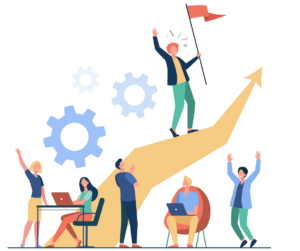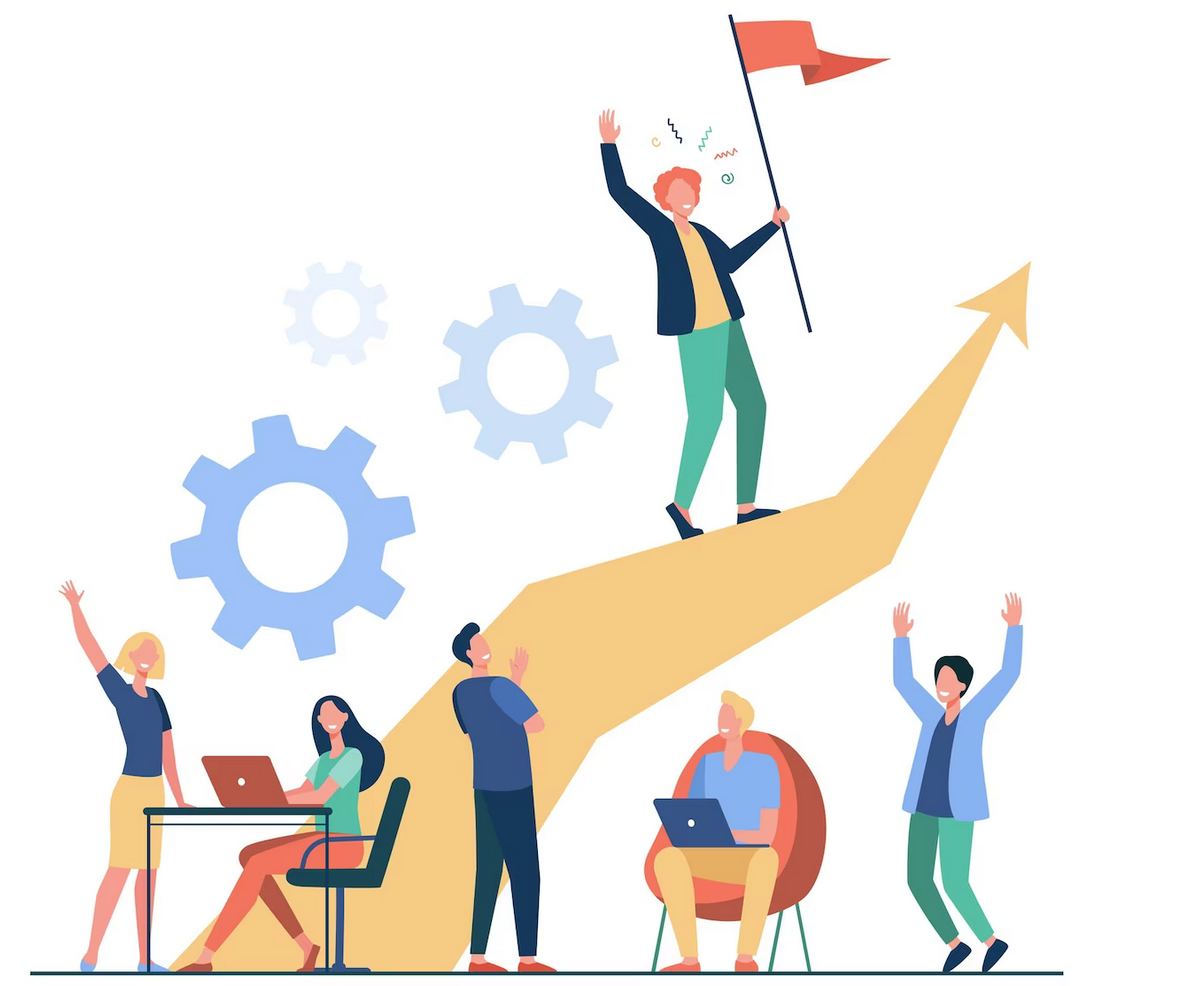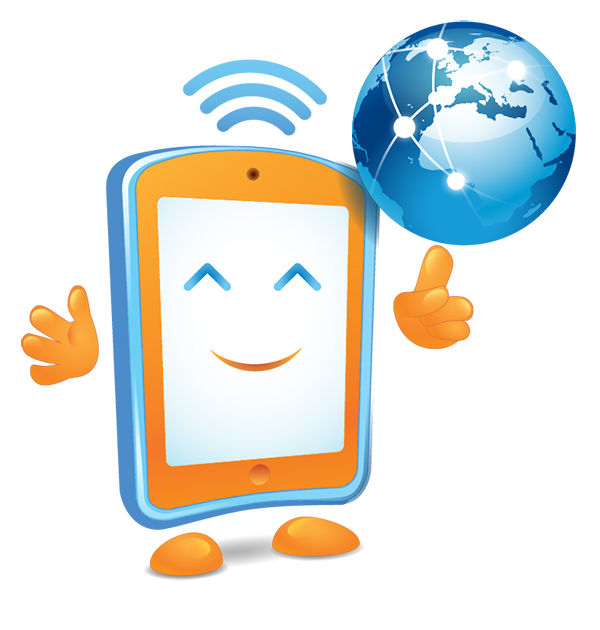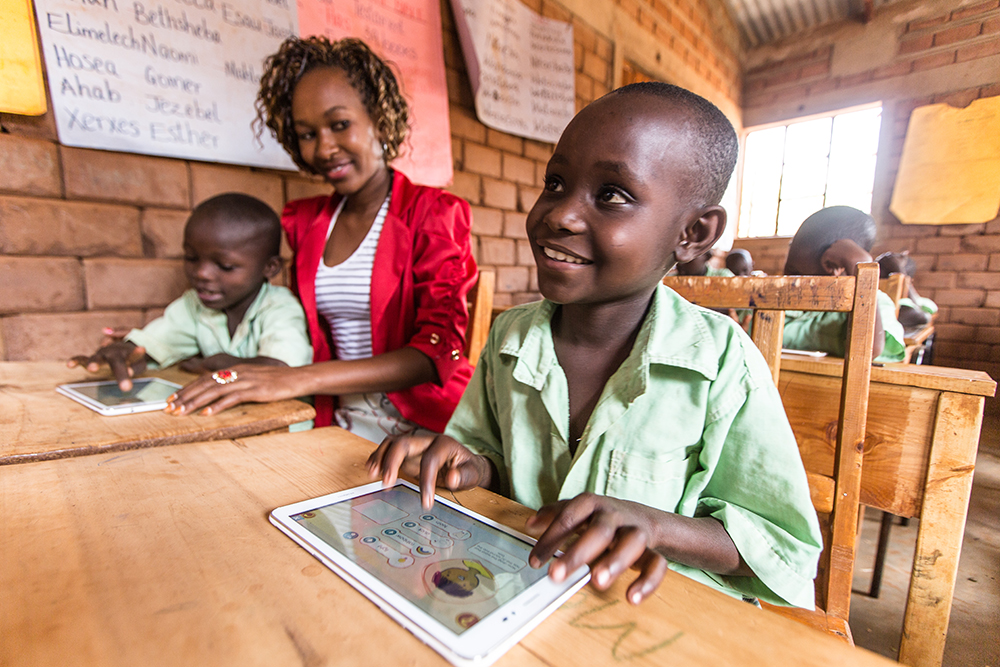“Adaptation capacity of a living being to a disruptive agent or an adverse state or situation.” This is the first definition the RAE offers for the term “resilience.” Adapted to the digital world, resilience thus implies the ability to face challenges and overcome difficulties in using digital technologies.

How is this achieved? To attain digital resilience, we need to equip individuals with the skills to adapt and thrive in a constantly changing technological environment. Unfortunately, not everyone starts from the same point. This is where the BRIDGES framework comes into play, developed by World Education through its CrowdED Learning initiative and the EdTech Center, designed to address the digital divide, which not only refers to the lack of access to devices and internet connectivity but also the lack of essential digital competencies.
In this sense, the framework provides a structured guide for developing these key skills, including resources and tools for educators and trainers, facilitating the implementation of training programs that can be adapted to different contexts and needs.
The framework includes 75 skills distributed across 10 domains. Here are these domains and some of the most important skills.
Digital resilience implies the ability to face challenges and overcome difficulties in using digital technologies.
Communication
Do you know how to behave using netiquette? How do you manage with Teams and Zoom? Do you know the purpose of social networks and use them appropriately? Digital communication skills improve interaction and collaboration in daily life, work, and education, allowing people to adapt to different platforms and contexts, ensuring effective and respectful communication, and facilitating collaboration and the safe use of digital technologies.
These skills include adjusting the tone of work emails, respecting diversity in group discussions in educational settings, and working together on shared projects using digital tools like photo folders, cloud storage systems, and collaborative documents. The ability to make voice and video calls over the Internet, such as through FaceTime or Zoom, is fundamental in both personal and professional contexts, facilitating virtual meetings and classes.
Creation
Writing basic code, understanding and using data, adapting and reusing existing digital content, designing digital content, creating “open” content, producing multimedia, reviewing and adapting existing content, and building websites… Creation skills enhance individuals’ ability to interact and contribute in digital environments, continuously adapting and improving content to meet the changing needs of different audiences and contexts.
How do these skills manifest in our daily lives? For example, in daily life, a person can create stories, animations, or games using simple coding languages; in the workplace, they can write simple scripts to automate repetitive tasks. In school, students can use collected data to create visual representations like graphs and charts, while teachers can combine their expertise with suggestions from personalized learning analysis tools to make informed decisions. Creating multimedia content, such as slideshow presentations with family photos, and building simple websites are other examples of how these skills apply in personal, work, and educational settings.
Device Ownership
When we become owners of a digital device, whether it is a mobile, tablet, or computer, we need to acquire and practice a series of skills to keep them safe and ensure their longevity. These skills range from basic maintenance and seeking technical support to security and basic troubleshooting.
Maintaining technological devices involves understanding the basics of purchasing, disposal, recycling, adding applications, and software updates; it also includes the ability to locate “help” or “support” sections on websites when an application or page does not work correctly, using chatbots to find necessary information to solve technical problems, and searching online for simple technical solutions on devices. Lastly, these skills include creating secure passwords, keeping login information confidential, and adjusting settings in the operating system and browser to enhance device security.
Entry Skills
Entry skills are considered basic and fundamental for performing basic operations with computers and digital devices, as well as maintaining routine maintenance and operating safely online. What are they? For example, basic internet searches to find relevant information, using basic browser tools like the address bar and bookmarks, using the mouse and keyboard, understanding computer components and peripherals, and the ability to save and find documents.
Information Skills
The BRIDGES Digital Resilience framework indicates that these skills are fundamental for navigating and utilizing the vast amount of information available in this era, allowing individuals to be critical and competent consumers and producers of information. Among the main skills, it includes the use and application of information, which involves combining understanding and knowledge to draw informed conclusions; it also encompasses accessing various sources of information, both traditional and online, considering and valuing classic information tools to complement and support the use of digital resources, and being able to evaluate the credibility of information found online, as well as comparing different sources.
Lifelong Learning
Lifelong learning skills are key for individuals to stay updated and competent in a constantly evolving digital environment.
How does this manifest in practice? What skills does the BRIDGES framework refer to? For example, the ability to find and use educational resources is vital for the continuous improvement of our learning skills. Adapting to new technologies means not only learning to use new tools but also integrating them effectively into daily and professional life.
Setting clear goals and reflecting on our progress helps us identify areas for improvement and develop action plans to achieve our objectives. This practice of self-reflection and continuous adjustment of learning strategies ensures that digital skills remain relevant and useful in various contexts.
Mobile Devices
These competencies allow individuals to use mobile devices efficiently and safely in various contexts. What are they? For example, knowing how to manage apps to access goods and services through apps; understanding the difference between Wi-Fi and mobile data to manage data usage and avoid additional costs; knowing the basic functions of the mobile, and implementing security practices, such as creating strong passwords and regularly updating software, to protect mobile devices from threats and risks.
Online Life
These skills are essential for individuals to make the most of available digital resources, manage their daily lives, and participate actively in the digital society.
Online life skills allow people to interact effectively and safely in the digital environment, facilitating the completion of daily tasks and participation in online communities. For example, the ability to find and use social and consumer services online is crucial for accessing essential resources; accessing community resources online allows individuals to connect with government and local services, promoting greater community integration; using technology responsibly involves understanding its impact on the environment and society and adopting practices that minimize these negative effects. The ability to shop online safely and efficiently is fundamental in the digital age, as is knowing copyright and the proper use of available online content.
Privacy and Security
Having privacy and security skills helps you protect your personal information and navigate the digital environment safely. For example, knowing how to recognize and verify secure websites will allow you to conduct online transactions without risks, recognizing online threats such as phishing is essential to avoid scams and protect the integrity of the device and personal information, and minimizing the sharing of personal data helps protect your privacy as a user. It is also important to manage your online reputation, which involves being aware of the permanence of actions in digital environments and taking measures to protect and enhance our online personal image. Finally, understanding privacy policies allows users to make informed decisions about how their personal data is used and protected by online services and platforms.
Workplace and Productivity
These skills enable individuals to use technology to improve their productivity and perform adequately at work. Starting with the ability to search for jobs online, which includes not only creating resumes and searching for job offers but also effectively applying to those offers. Other skills include knowing how to manage projects online, which involves using digital tools to organize and supervise tasks, deadlines, and collaborations; creating slide presentations and documents using specialized software, which is essential for communicating information clearly and professionally, and managing professional networks online, allowing individuals to establish and maintain important connections that can benefit their professional development and career opportunities.
Proper implementation of this framework is critical and will help close the digital skills gap, promoting effective adaptation to the digital environment for all people, regardless of their context and starting point, and empowering individuals to face digital challenges with confidence.






